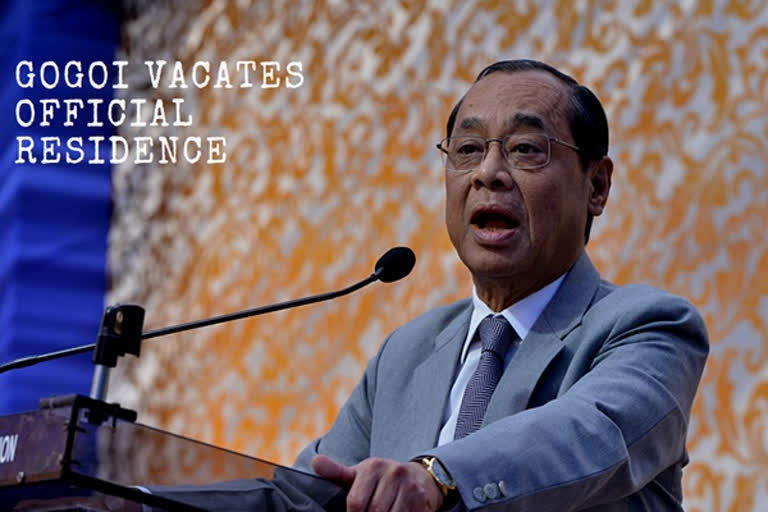New Delhi:Former Chief Justice of India Ranjan Gogoi, who demitted the office on November 17, has vacated his official residence within three days of his retirement.
According to court officials, the usual deadline to vacate official residence is one month. The bungalow at 5 Krishna Menon Marg was assigned to Justice Gogoi, and it is learnt from officials that he is first Chief Justice to vacate his official residence so soon after his retirement. Reportedly, Justice J.S. Khehar, former Chief Justice, also vacated his residence a week after his retirement.
Justice Gogoi headed the five-judge which decided the Ayodhya title dispute and delivered a landmark judgement.
In his speech on his last working day on November 15, he said the judicial system is facing new challenges, which emerge from within and outside of court complexes and judicial processes.
The outgoing Chief Justice did not directly refer to the sexual harassment allegations against him by a court staffer, but instead said: "As an institution, we have tried to deliver much more than what is reasonably possible, yet, today each of us is required to deal with new challenges, which unfortunately arise from within and outside of our Court Complexes and our judicial processes."
Citing the stakeholders in the judicial system, he said that their indifference to the dignity of the institution has reached new lows in the recent past, as rank hooliganism and intimidatory behaviour has become the order of the day in some pockets of the court system. "This has to be acknowledged, so that its vicious designs are defeated and the glory of our Institution stands uncompromised," he said.
The CJI has also said that the youngest of the judges should not suffer the belligerency of a handful, who may masquerade as stakeholders, but are "hostile to legitimate processes and would go to any length to browbeat the seekers of truth and justice".
He emphasised that many face daily challenges in the form of missing infrastructure or even reckless action from local members of the bar, and it should not make them forget they are a part of a greater narrative that has a major role in unifying and integrating the citizenry and strengthening the justice delivery architecture of the nation.
Also Read:RS discussion on Transgender Persons Bill concludes
